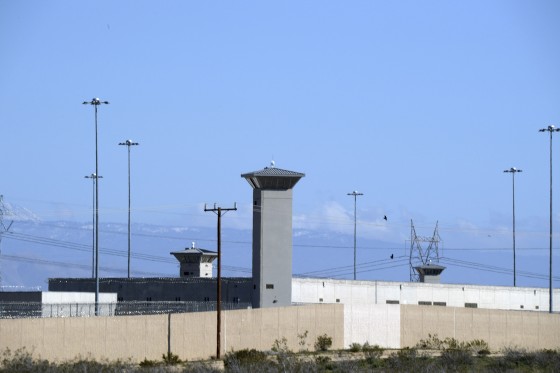
Attorney General Merrick Garland's directive reverses a Trump administration decision that would have required thousands of convicts to return to their cells.

WASHINGTON — Attorney General Merrick Garland ordered the Bureau of Prisons on Tuesday to allow federal inmates released because of the Covid pandemic to remain at home.
Garland's directive reverses a Trump administration decision that would have required many of those who were released to return to their prison cells.
"Thousands of people on home confinement have reconnected with their families, have found gainful employment, and have followed the rules," Garland said in a statement.
"We will exercise our authority so that those who have made rehabilitative progress and complied with the conditions of home confinement, and who in the interests of justice should be given an opportunity to continue transitioning back to society, are not unnecessarily returned to prison," he said.
In passing the CARES Act, the federal government's response to the onset of the coronavirus pandemic, Congress allowed the release last year of some prisoners based on their age, health and length of remaining sentence. William Barr, who was then the attorney general, acted to allow the release after five inmates died of Covid-related illnesses in Louisiana and Ohio.
The department's Office of Legal Counsel said in January that federal law required many of those inmates to return. But a memorandum issued Tuesday said a better reading of the law is that it "does not require that prisoners in extended home confinement be returned en masse to correctional facilities when the emergency period ends."
The Bureau of Prisons "has discretion to permit prisoners in extended home confinement to remain there," it concluded.
Justice Department figures show that more than 35,000 inmates were released to home confinement. The nearly 3,000 of those with longer sentences remaining would have had to return to prison under the previous policy, which declared that home detention was meant to be temporary.
The best-known federal inmate to benefit from the home confinement policy was Michael Cohen, the ex-lawyer to former President Donald Trump. He was released in May 2020, about 18 months before he was originally scheduled to be let out.
Five days before the end of the Trump administration, the Office of Legal Counsel said the release authority would expire 30 days after the president declared an end to the national pandemic emergency. After that, the memo said, those who were released would have to return to prison. Tuesday's memo reached the opposite conclusion.
Pete Williams is an NBC News correspondent who covers the Justice Department and the Supreme Court, based in Washington.